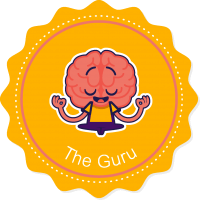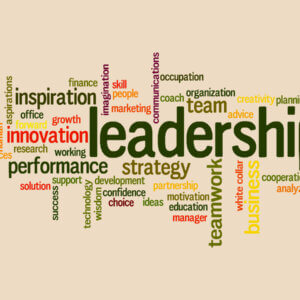
“Reflection – looking back so that the view looking forward is even clearer”. Unknown
We’re often asked about our happiest moments, or toughest challenges and the actions that have
got us to where we are at key moments in our lives. However, thinking on our day-to-day actions, we
often lack the time or energy to reflect on what happened in the past 12 hours. When in fact this is
the most crucial for self-improvement both personally and professionally. Reflective practice is an
integral part of the teaching process to ensure links can be made from one experience to the next
and progress in practice is constantly happening. At the end of a long and tiring day in the classroom, emotions can run high and its easy to feel overwhelmed. However, reflection can minimise the stresses faced by teachers by examining what went well, what can be improved and outlining actionable steps to put into daily practice.
A reflective teaching practice is a cycle in which teaching takes place, self-assessment of the
effectiveness of the teaching for the learners is considered, new ideas to teaching approaches are
explored, trialling these methods in the classroom, and repeating the process. It can be done with
others to share best practice as well as get support, meaning its valuable for both new and
experienced teachers.
When considering the stages of the reflective cycle, all teachers are familiar with the planning and
preparation stage of teaching, but the period of self-assessment is crucial for a successful teaching
session. Therefore, when thinking about self-assessment it is important to build this into your daily
practice. Whilst the end of the lesson, is the best time to assess the outcome of the teaching and
learning, it is not always possible to do so due to time constraints and other commitments.
Therefore, it would be recommended that the end of the working day is the next best option. Take
some time each day to look back on each lesson plan, considering the questions of “What went well? What would I change if I repeated this lesson tomorrow? What was the learning atmosphere like?” This time for reflection and self-assessment allows for the learning process to be fully maximised, removing any possible barriers, as well as the teaching to be engaging and innovative. This process can also be helpful when considering learners who may have special educational needs or require further learning support, ensuring your teaching practice is meeting the needs of the individuals. It can be helpful to build a reflection section into your lesson plans to make this a regular practice and keep track of how your practice evolves over time. A learning journal can also be helpful for recording these thoughts and ideas.
Once reflection of the teaching and learning has taken place, the room for new or modified methods
of teaching can begin. This does not have to be a scary experience but one to enjoy and relish in. You can make small changes to an activity or reconsider your entire approach but whatever you decide can encourage new learning opportunities for both you as a teacher and for students. Speak to your colleagues, explain the challenges you might have faced and often a solution (or multiple) will be offered. This will encourage sharing of best practice which can be incredibly helpful. Also consider reflection with the students, as feedback from the learners can help you make more informed decisions about the teaching process and what truly meets the needs of the learners. Another useful tool can be peer observation. Whilst it can feel daunting to be observed, it should be viewed as a positive learning tool. Allowing your colleagues to observe your teaching practice can enable them to offer further guidance for creating a more engaged classroom, with new activity ideas and approaches you may not have considered before.
Remembering some key principles when instilling your reflective practice into practice are:
– Reacting How will I decide what area of my practice I will focus on?
– Recording How will I assess my performance?
– Reviewing What worked well and how do I know this?
– Revising What will I change or adapt?
– Reworking How will I put this in place?
– Reassessing How successful were the new strategies?
Try and find a process that works for you and remembering these key principles will help you build a
teaching practice that ensures the classroom becomes a space to thrive in, both for you as a teacher and for your learners.
Katarina Mann
Academic Advisor
Cambridge International Education





This article was quiet helpful.
Fantastic article.I could relate to it…
A very good read. I believe reflective practice will enable us to become confident teachers, equip us to understand how our students learn allowing us to come up with the best ways to teach them.
It was very helpful.
Awesome article.
It helps the teachers to provide critical ability to learn things in a deeper level of understanding
at the end of the day it provides a first hand experiences what should have been done in a more better way, what are the efforts which needs to be required and help them to explore the potentialities and abilities in a more better way.
Helpful
@vipulpal98701234 Hi vipul pls do read this article .
@vipul-pal Hi
Quite Helpful
Helpful write up
This article offers valuable insights into how it assists educators in fostering students’ critical thinking skills and facilitating deeper levels of understanding. It underscores the importance of firsthand experiences in refining teaching methodologies and identifying areas for improvement. Moreover, it highlights the significance of concerted efforts in exploring students’ potentialities and abilities more effectively. Overall, the article provides a comprehensive perspective on enhancing teaching practices and student learning outcomes.
Helpful
This article has given us a clear thought of reflective practice. Key principles of reflective practice into practice mentioned are really fantastic and helpful for each individual to improve as a teacher to adapt new methodologies or strategies to identify the needs of students to create an active learning classroom environment by planning an interesting activities where the children shows interest in learning with involvement.
This is a wonderful write up on reflection that actually helps the educators to evolve gradually .
Engaging in reflective practice serves as a crucial element within the teaching journey, facilitating the establishment of connections between experiences and fostering continual advancement in practice. Following a lengthy and exhausting day in the classroom, emotions may surge, leading to feelings of being overwhelmed
It’s amazing
Reflection of your classes makes you improve your teaching practices, making teaching and learning more fruitful and enjoyable.
Reflection in teaching is necessary so that one can fill the loopholes in teaching learning process.
Wonderful ! This is the need of an hour .
Informative article, we should use this in every strata of life, reflect
Fantastic article.
At the end of the day, it gives first-hand experiences of what should have been done in a better way, what efforts are necessary, and helps the teachers to explore the potentialities and abilities in a better way. It also helps the teachers to provide critical ability to learn things in a deeper level of understanding.
Of course, Reflective practice is an
integral part of the teaching process
This article is really useful.
Reflecting one’s own performance will definitely enhance as well as incorporate new innovative methods of teaching.
Reflection
This practice is a must do at the end of any topic. An educator can monitor both his impact of subject study and the output from his learners. Reflection to me is a mutual exercise, it on one hand provides a feedback to educator and on the other, it helps to peep down the comprehension and responses from learners.
Reflective practice is essential in teaching, enabling continual improvement and progression in practice.
Helpful article